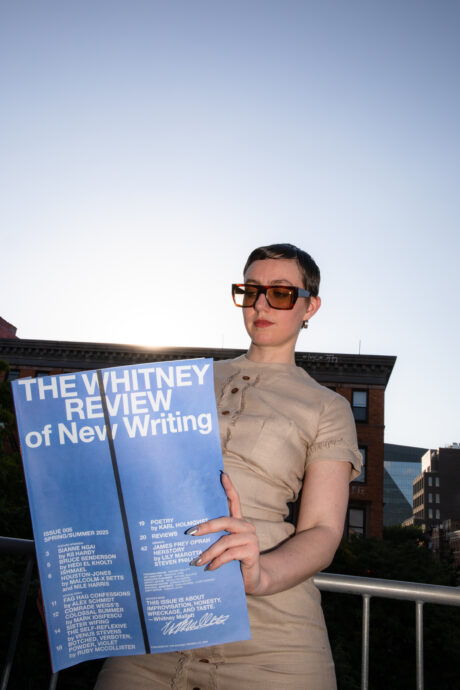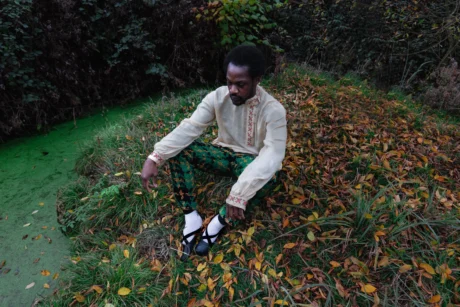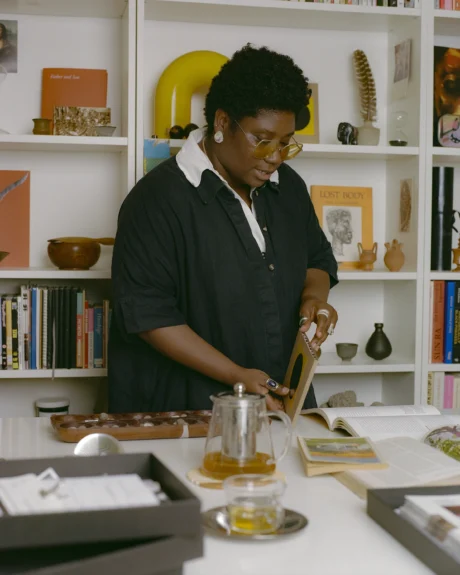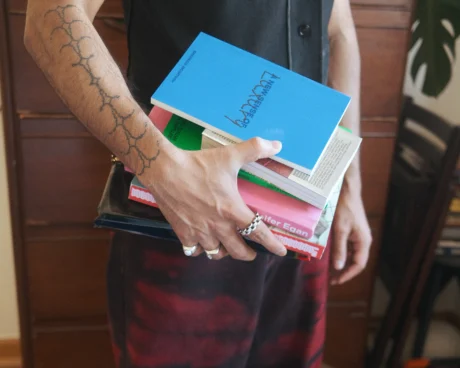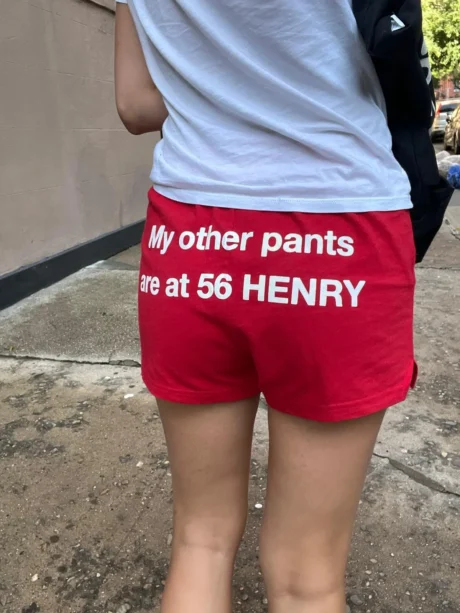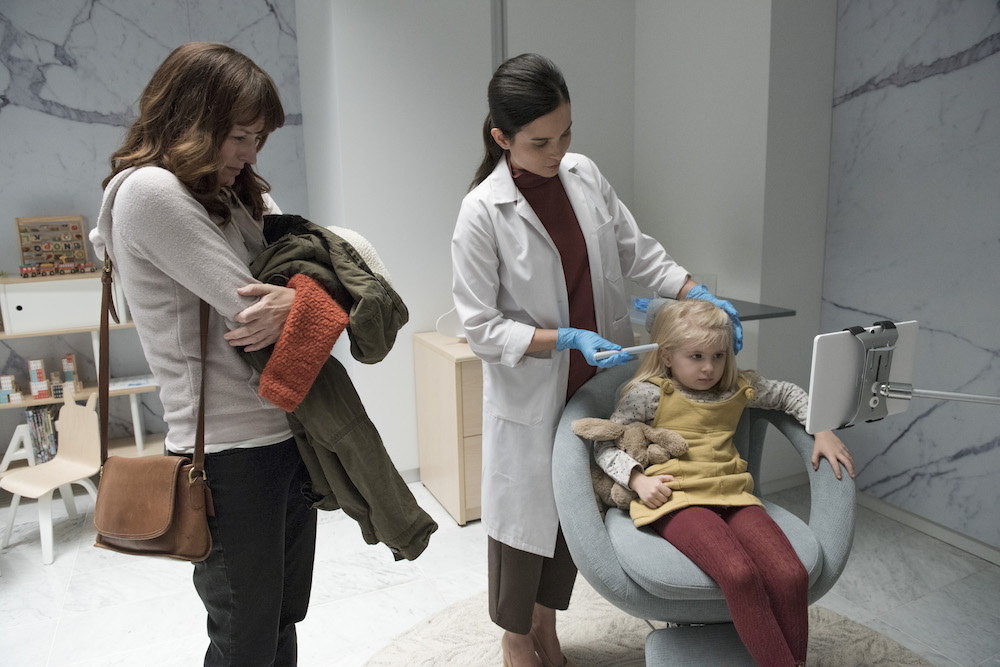
I have a confession to make. This week, my baby rolled off the bed. It was one of those “I just turned my back for a second” moments (As if! I always thought until it happened to me). I was less than 50cm away from her getting fresh clothes from her closet when I heard a tiny thump and turned around to see her on her back like a beetle, her hands waving in despair, face scrunched up, a huge scream about to erupt from her little body. I flung the clothing items asunder and scooped her up, trying to still my trembling heart. Luckily, she was fine. It took me longer to recover. I think about the pose of Julie in Rineke Dijkstra’s 1994 postpartum photograph, taken only hours after birth, both bodies still so vulnerable and raw, the gauzy medical underwear, the baby’s skin still purplish. It’s the way she covers her baby’s head with her hand, a gesture that is both comforting and primordially fierce.
I called my boyfriend to confess. “I have to tell you something,” I said. “Great,” he said once he’d heard it all, “I have two free passes now!” He was clearly forgetting that a month ago when he was out walking with our baby at sunset, a Russian tourist who stopped to pet her had to point out that she was cold.
“As the Jodie Foster-directed Black Mirror episode Arkangel projected with bone-chilling acuity, the protective instinct of a parent can be paradoxical”
I wish I could prevent my daughter from suffering any physical or emotional pain ever again. But I still have to bear the first wobbly steps, the slightly steadier steps and then the dreaded first crossing of the road; I will one day have to let go of the back of her bike seat. I will eventually have to leave her with other people who might be even more clumsy than me. As the Jodie Foster-directed Black Mirror episode Arkangel projected with bone-chilling acuity, the protective instinct of a parent can be paradoxical.
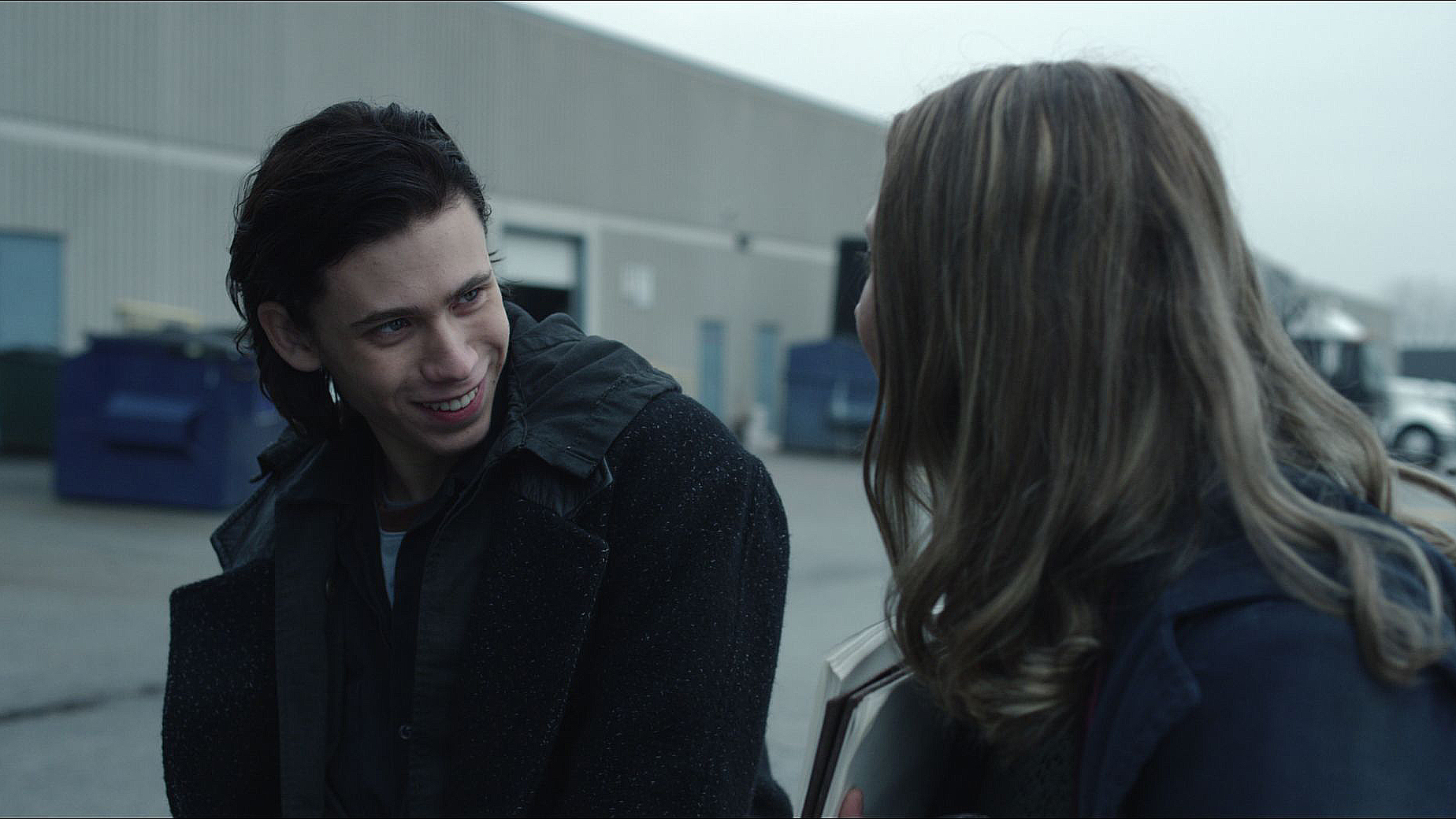
Profound parental fear, I have discovered, is communal. When telling friends about “the fall” I’ve been relayed many similar accounts, some that happened decades ago, but told with the same unrelinquishing guilt: a friend who as a child dropped his baby brother; a mother who, while trying to soothe one child who had fallen didn’t put the brakes on the other child’s pram properly, and it almost hurtled down a hill. It’s not only guilt over the hapless and hopefully harmless accidents. There’s guilt about everything: you forgot nappies or clean clothes, you woke them up moving them out of the car. You didn’t kiss them 5000 times or dangle enough toys in their face. They got bitten by a mosquito. Are they too hot? Too cold. Mothers in particular talk about “the guilt” often. I asked two mothers I know what’s in store in the future. “A lot more guilt,” came the unanimous reply.
I later brought the subject up with my boyfriend, who has recently been working 8am to 8pm, seven days a week. “Do you feel guilty going to work?” I suggested.
“I wouldn’t say guilty exactly,” he said.
“How about if you’re on your own with the baby but you’re doing something else?”
“No. I don’t think she cares. I mean, the best time of her life so far was probably in the toilet on a plane. She likes small stinky rooms.”

I think of Gelitin’s gigantic poos, recently installed at the Museum Boijmans Van Beuningen, Rotterdam, to which I can now relate in more ways than one, having had excrement smeared on places I didn’t know existed. (As the above image shows, the giant poos are hugely popular with children.) I shrug. What causes this pervasive and endemic maternal guilt? Is it work? Is it the selfishness of modern life? Am I just a bad mum? In the last episode of season 4 of Transparent, Maura says to her sister, “We might have been bad mothers, but we stayed.” Is simply staying with your child enough?
When we confront the subject of quelling mothers’ guilt, the focus is usually on practical solutions. In an interview with Fleur Britten for the ST Style column What She Said, Trainline CEO Clare Gilmartin said that “Soon after having kids I realised that my success had to be about results, not hours worked.” Kimberley Harrington, writing on the topic of balancing work with kid in the New Yorker takes a different tack. “I have no problem lying about ‘being in a meeting’ when I’m with my kids and no problem lying to my kids about ‘needing to work’ when I’m on Facebook.”
“What causes this pervasive and endemic maternal guilt? Is it work? Is it the selfishness of modern life? Am I just a bad mum?”
The works of American painter Elizabeth Murray capture “the screaming, fractured energy and frustration that come from being both an artist and a mother, but ultimately transcend specific circumstances to make a more universal statement about life’s challenges and satisfactions that is neither masculine nor feminine”, writes Sharon L Butler. Murray died in 2007, leaving behind two daughters and a son. Through her work, she advocated for women to be able to open up and express the full gamut of emotions that come with motherhood. Looking at the strident cacophony of colour in paintings like Topple and Kid, I can’t help but think of my poor baby rolling off the bed, and the clash of emotions that I experience every day, being me, being with her, once being part of each other, joined together, now close but separate—dovetailed so beautifully in Murray’s morphing shapes.
I haven’t found a solution, but I have found relief in Murray’s painting, and in the writings of Donald Winnicott, the late British pediatrician and psychoanalyst, who wrote of the way a child and mother (or mother substitute) can learn to be “together alone”, as “the paradox that the capacity to be alone is based on the experience of being alone in the presence of someone”. I would like to hope that, while my baby girl is rolling (safely) around next to me, and my mind is elsewhere, that she is learning, that being there is at least reassuring. Then she giggles and grabs my full attention, I fling my phone away… and it clips her on the leg.
